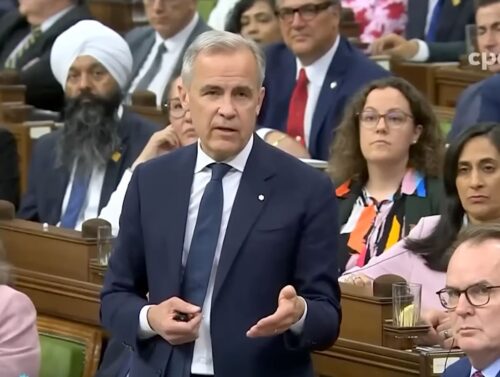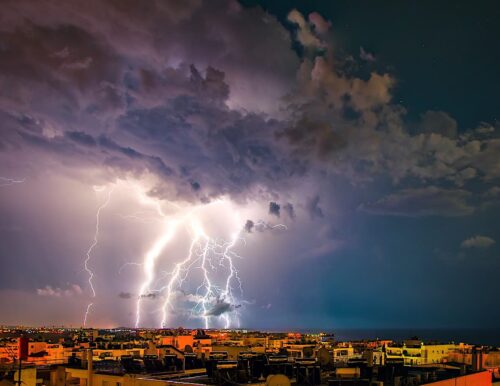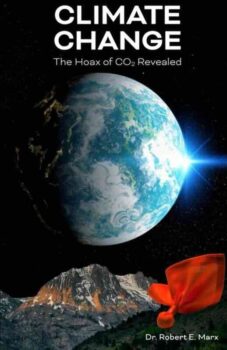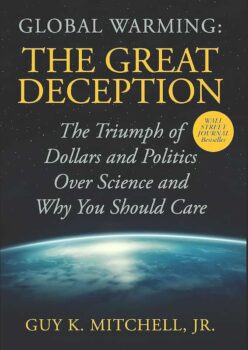
The headlines in stories reporting on the UN’s latest climate change report all say something along the lines of: “Urgent changed is needed to prevent global catastrophe.”
If global temperatures climb more than 1.5 degrees Celsius — compared with pre-industrial temperatures — all hell will break loose, the UN says. There will be catastrophic flooding, drought, more weather extremes.
Hundreds of millions will be susceptible to poverty by midcentury. Even at 1.5 degrees, terrible things will happen.
To be clear, we are highly skeptical of these doom-and-gloom scenarios. Past predictions of global warming catastrophes have failed to emerge.
In the U.S., for example, there’s been no trend toward more extreme weather, drought or flooding, even though the planet has already warmed 1 degree Celsius.
This year’s tornado season, in fact, has been the mildest on record. What’s more, environmentalists have issued these “point of no return” warnings for decades, only to revise them once the supposed deadline passes.
Global Warming Is Inevitable
But even if the alarmist predictions are true, there’s nothing that can plausibly be done at this point to stop it. That’s the real message of the annual UN Intergovernmental Panel on Climate Change report.
The chart contained in the “Summary for Policymakers” shows projected changes in global temperatures over the next 100 years.
It also shows that temperatures will top the supposed 1.5-degree limit by around 2040, even if the world makes drastic reductions in CO2 and other greenhouse gas emissions within the next two decades.
How drastic?
The UN’s forecasts all assume that the entire world becomes entirely carbon-free by 2055 … at the latest. That’s just 37 years from now.
It also assumes that the world makes massive reductions in other greenhouse gases, such as methane.
Here’s an example of what the UN says would have to happen within the next 12 years to meet that goal. Keep in mind, this is the low end of the UN’s proposed changes.
- Sixty percent of the world’s energy would have to come from renewable sources by 2030, and 77% by 2050. (The Department of Energy forecasts that renewables will account for just 27% of the U.S.’s electric power generation by 2050.)
- Coal use would have to drop 78%, oil 37%, and natural gas 25% — compared with 2010 levels — within 12 years. (Last year, global coal demand increased, and use of natural gas has massively climbed in the U.S.)
- There’d have to be a 59% increase in nuclear power by 2030 and a 150% increase by 2050. (Good luck getting environmentalist to buy into that).
- Farmers would have to figure out how to cut methane emissions by 24% by 2030, (and still feed a growing worldwide population).
Even those massive reductions won’t produce enough CO2 reductions it. So, the UN assumes the world will also remove massive amounts of CO2 from the atmosphere. That’s despite the fact that nobody knows how to do that today.
Unprecedented, Or Wishful Thinking?
The UN itself admits that achieving anything like these levels of greenhouse gas reductions “would require rapid and far-reaching transitions in energy, land, urban and infrastructure, and industrial systems.”
It goes on to say that such an undertaking would be “unprecedented in terms of scale.” And it would require a “significant upscaling of investments.” In other words, massive amounts of money.
To say that changes of this magnitude within that time frame are unrealistic would be putting it mildly.
The last big attempt to get the world to cut CO2 emissions turned out to be a farce. As the UN itself admitted, the CO2 reduction pledges made by the 195 countries that signed on to the Paris Accords won’t come anywhere close the level of CO2 reductions it says are needed to avoid “catastrophe.”
And countries aren’t even living up to those pledges.
In the EU, carbon emissions started climbing again last year. Germany is way off its carbon reduction goals, despite plans to spend $580 billion to overhaul its energy system.
A recent report showed that only nine of 195 countries have submitted their CO2 reduction plans to the UN.
Does anyone honestly believe that these countries will suddenly decide to entirely decarbonize their economies in three decades?
Adapting To Global Warming
So, if the chances of avoiding a climate “catastrophe” are gone, what should be done?
Sure, we can research carbon removal technology. And, as the U.S. has shown, a free-market economy — simply by encouraging cost-cutting and efficiency — can generate CO2 reductions without the heavy hand of government.
But in our view, the most prudent course of action isn’t to wreck the global economy in hopes that it might make a small difference in the climate 100 years from now. The more reasonable approach is to adapt to whatever changes do occur.
Even if the horror stories told by environmentalists come to pass, mankind can and will adjust.
After all, the human race has shown the ability to survive in the most extreme climates. And it’s done so with far less technological sophistication.
We’ve learned to live in deserts. And in the Arctic. In hurricane alleys and earthquake zones.
The idea that we won’t be able to handle changes caused by a slightly warmer planet over the next millennium is ludicrous.
Meanwhile, if the environmentalists’ horror stories don’t come true, we won’t have wasted trillions upon trillions of dollars tilting at windmills.
Read more at IBD



















I am providing this link to give you some information that you are missing. You state: ” So, the UN assumes the world will also remove massive amounts of CO2 from the atmosphere. That’s despite the fact that nobody knows how to do that today.” Actually, lots of people know how to do that and are already doing it. http://ecofarmingdaily.com/reversing-climate-change-regenerative-agriculture/?utm_source=Acres+U.S.A.+Community&utm_campaign=006c7e9b11-EMAIL_CAMPAIGN_2017_12_28_COPY_01&utm_medium=email&utm_term=0_65283346c2-006c7e9b11-184923159&goal=0_65283346c2-006c7e9b11-184923159&mc_cid=006c7e9b11&mc_eid=e9951d16ce
So, according to the IPCC hundreds of millions of people are susceptible to poverty. Then the solution is to drive them into poverty by making energy costs so high that our economies all collapse. Sounds like a winning plan to me.
And how soon will Useless Nations be giving up traveling all over the world in their jets how soon will they all start living in grass huts how soon will they quit using all that energy to travel all over the globe and how son will they quit using all that electricity and running water TRY NEVER